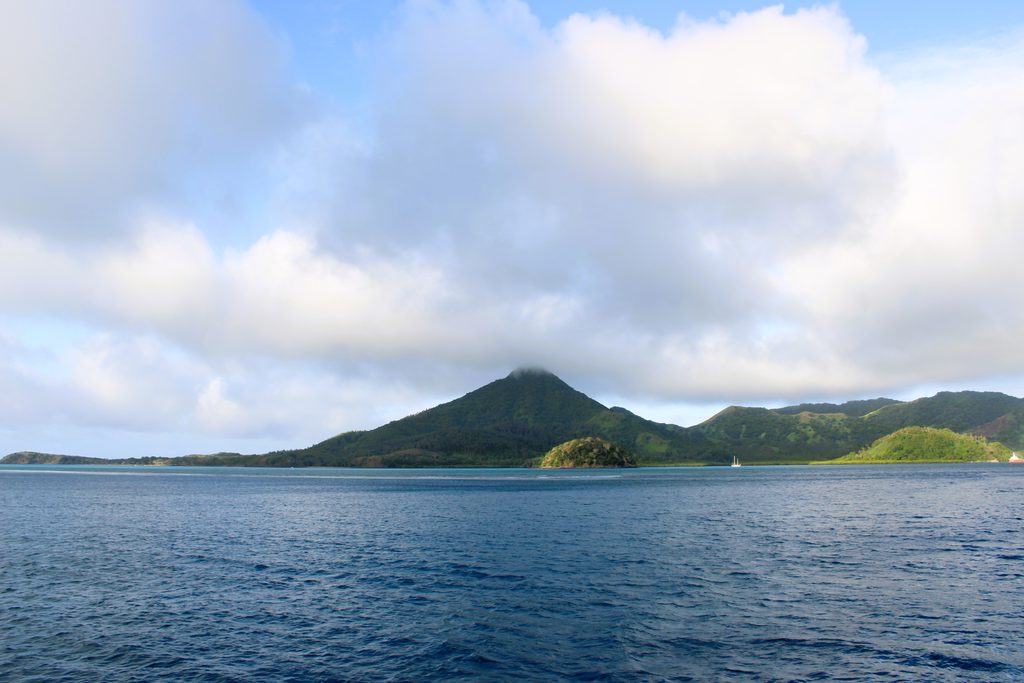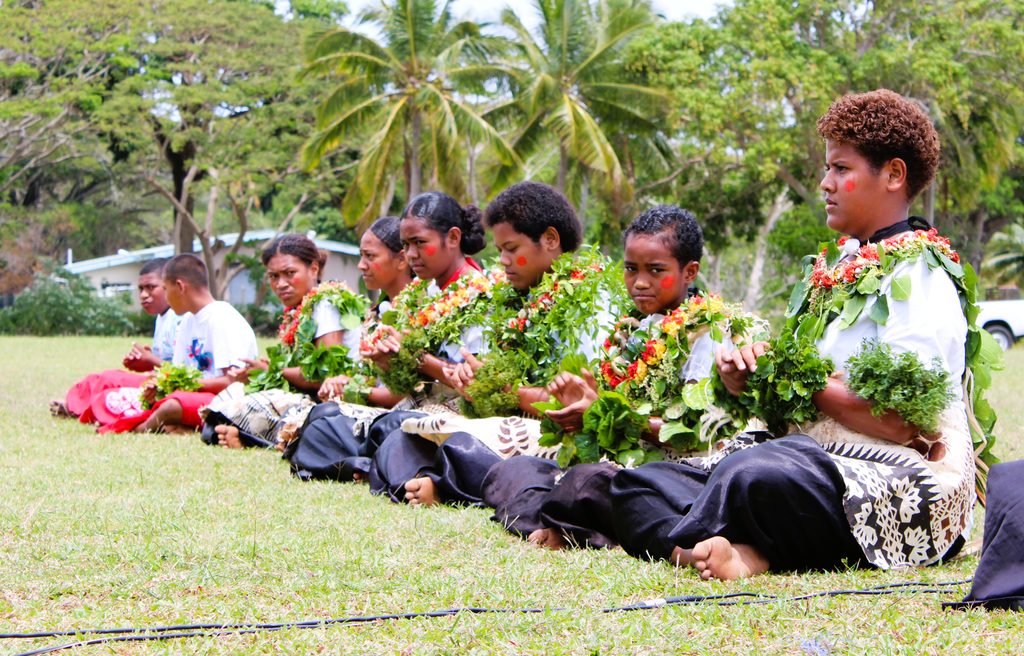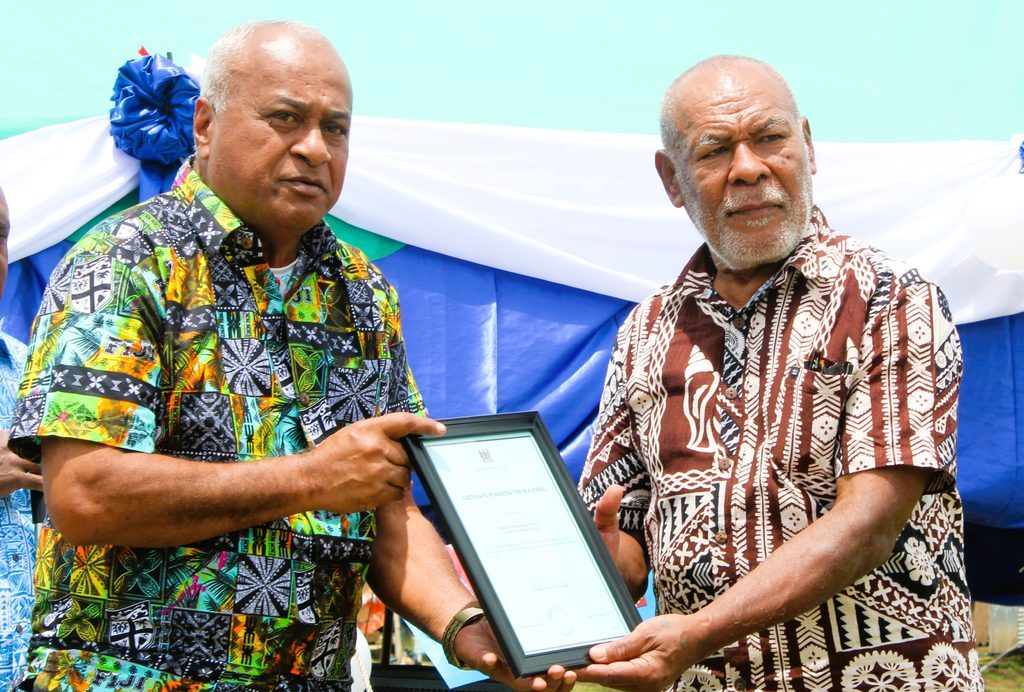SPEAKING exclusively to The Sunday Times from his chiefly seat in Yaroi Village on the island of Matuku in Lau last month, Turaga na Tui Matuku Roko Lorima Niumataiwalu reflected on the long and often painful journey behind the establishment of Matuku Secondary School, an institution first envisioned in 1967.
“From then till only recently, only the foundation of the school building was laid,” he recalled.
“Many things happened with how money raised for the school’s establishment was abused and not properly accounted for.”
Despite the setbacks, he said the people of Matuku, both at home and abroad, had given everything they could.
Many of the pioneers travelled to Vanua Levu to work on copra plantations, while others sought employment overseas, all in pursuit of a dream to educate future generations.
Matanigasau for a new beginning
When plans for the school finally began to move again, the Tui Matuku felt it was only right to first address the pain of the past.
“As the leader of the vanua, I felt it was necessary to present a matanigasau (traditional apology) to my people, given how long the project had stalled,” he explained.
Though some advised him not to do so arguing that those responsible for past mismanagement had already passed on, Roko Lorima disagreed.
“The spirit of what was done remains on the people,” he said.
“It is our duty as those still alive to clear any ill will and move forward with a clean heart and renewed vision.”
The simple but moving ceremony took place on the grounds of the district office in Yaroi, where the new school is temporarily operating.
The Tui Matuku believes the blessings from that act of reconciliation are now evident.
“The sau and mana of what was done then is visible today with the people of Matuku coming together from across Fiji and abroad to finish what was started in 1967.”
Education, family, and the vanua
Matuku Secondary School officially opened earlier this year and will soon move into its permanent buildings.
However, Roko Lorima’s vision for the school goes beyond the physical structures.
He insists that the school must not become a boarding institution.
“I want the children to remain in their homes, with their parents,” he stressed.
“It may not have been obvious before, but many of the social issues facing Fiji today are a result of the absence of parental guidance during adolescence.”
He has requested government support to accelerate road development on the island so that students from all villages can access the school daily.
“We must return to the family unit and make it stronger as a guard for our children against the negative influences at play today,” he said.
He warned that the exodus of entire families to Viti Levu, when children leave the islands for school, has weakened village life and disrupted the vanua.
“Keeping our children in their homes and villages ensures that the family as a whole remains strong. It also sustains the life of the village and the wellbeing of the vanua.”
Accountability and the diaspora
The Tui Matuku expressed gratitude to the Matuku community abroad, especially those in the United States, for their significant contributions towards the school’s construction.
“They treasure our traditional artefacts and actively use them in ceremonies, even while living abroad,” he said.
“But I gently remind those managing the funds to uphold the principle of accountability and ensure the money is used for its intended purpose.”
iTaukei renewal
Beyond education, Roko Lorima spoke passionately about the state of iTaukei leadership and governance in Fiji.
He believes the time has come for a renewed matanitu iTaukei, an indigenous administration capable of addressing the challenges faced by Fijians today.
“A stronger iTaukei administration doesn’t mean the marginalisation of other ethnic groups,” he clarified.
“It must work within the law and ensure everyone enjoys opportunities and prosperity.”
Reflecting on Fiji’s history, he noted that the iTaukei administration was strongest during two periods, between 1876 and 1914, and again from 1944 to 1967 under the leadership of Ratu Sir Lala Sukuna and leaders that came after.
He now envisions a revitalised structure built on that legacy but adapted for modern Fiji.
He also called for a national meeting of all 215 chiefs in Fiji, to address pressing national issues and reawaken the sense of duty among traditional leaders.
“Coups were never beneficial for anyone, not even the iTaukei,” he said.
“A meeting of all the chiefs is needed so that every issue is ironed out. Too many leaders today are only there for the perks and privileges.”
“We must become chiefs with vision,” he said.
“In Matuku, our challenge is Matuku Dua and we speak of Rairai Matuku, the mountain that symbolises foresight and vision. I call on my fellow chiefs to not just have a vision, but to work towards it. It must show in your actions.”
Nearly 60 years after a dream was born, Matuku Secondary School rises up, a physical reminder of Matuku Dua. Never say die. The dream lives on.
But for Roko Lorima Niumataiwalu, its significance is even greater, as it is a reminder of what unity, humility, and accountability can achieve when guided by the spirit of the vanua.
“What Matuku has shown the rest of Fiji,” he said, “is that for the iTaukei, education and the preservation of our heritage are vital to our survival as a people.”
The view towards Matuku with the sacred Mount Qilaqila surrounded by cloud. Picture: ALIFERETI SAKIASI

Students of Matuku Secondary School perform a ‘vakamalolo’ during the Matuku and Fiji Day celebrations in October at Yaroi village. Picture: ALIFERETI SAKIASI



